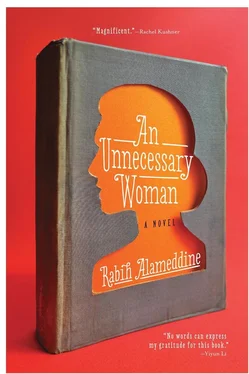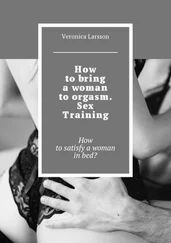The heel of my shoe lands on hard ground, the pavement tile, but the ball of my foot encounters no support and I lose balance. I gather myself quickly so I don’t fall forward. A hole in the pavement gapes at me — a hole big enough for a mining dwarf to slide through. I try to look in to gauge how deep the mine is, if only to guess how many leg bones I’d have broken had I stepped in it. Nausea overwhelms me, and I back away. The small hyperactive church bell rings in my ears again. A few meters away I stop, lean against a building’s wall in order to breathe and settle myself, to allow the miasma of memories to seep out of my head.
I must keep walking. Onward.
Two giant residential buildings are being erected on this tiny street. Billboards featuring ridiculously wealthy Westerners shopping, swimming in private pools, and getting facialed in spas cover the construction sites. One slogan proclaims WE’RE BEIRUTING AGAIN. Hundreds of these buildings are going up all over the city, none of them less than super ultra deluxe.
Not long after I was married off, the family of which I’d suddenly become a superfluous part moved into the apartment that my mother and my half brother the eldest’s brood live in now. The change of residence, one street over, was an upwardly mobile one, but not by much, from two bedrooms to two and a half — the half being my mother’s cell. The tiny building with the tinier apartment I grew up in was leveled and replaced by a twelve-story complex with a sushi boat restaurant on the ground floor where our home used to be. I’ve never eaten there.
I don’t ring my mother’s doorbell (my half brother the eldest’s). I pause briefly before knocking on the pinewood door. Hearing nothing, I wait. It has been such a long time since I’ve stood on this spot. Scratches, scrapes, and dents make the door look like the bottom of a litter box, but the copper knob is polished to a shine by the touch of many a hand — many a hand but not mine, not in a while.
I refuse to touch it, refuse to turn it. I notice that my hand is fiercely clutching the black wrought-iron railing that surrounds the landing. I let go.
I wonder what Murakami would think about strangers slicing tuna where he once slept, where now a series of dispirited miniature boats connected stem to stern goes around and around forever.
No one seems to be answering my knock. I lean into the door, hoping to hear no sound within the apartment. I won’t be disappointed if no one’s home, for I can most certainly return another day. I can climb these seventeen shallow, steep stairs once more if I want to, if I choose to. The wood presses the scarf against my ear.
I ring the doorbell. A rustle of steps inside, then more steps. A young girl in a T-shirt, jeans, slippers, and clumsy makeup opens the painted pine door. Thirteen, I’d say, maybe even fourteen in spite of the ludicrous pigtails. An obstinate ridge of pimples occupies the lower right quadrant of her chin. Her eyes hide behind lids that droop heavily, giving her an appearance of permanent apathy that belies a shadow of astonishment, possibly even excitement, over this seemingly rare occurrence of a stranger at the door. Her T-shirt screams KENZO in sparkling gold letters.
She is so very young. I try to hazard a guess as to whom she might be, what our relationship might be. There is a resemblance, of that I’m sure. She’s family. I’m stumped.
“I would like to see my mother,” I say as a formal announcement.
She obviously has no idea who I am or whom I’m asking about. She calls her grandmother, loudly and a bit too insistently. She waits at the door, guarding it, not exactly preventing my entry, but standing slightly aside as if she expects me to offer her a tip or at least a keepsake as a souvenir of our encounter.
Her grandmother is none other than my starchy sister-in-law, all shortish height of her. The bewildered look on her mousy face may be worth whatever nasty surprises are lurking within this household. She looks tired, haggard and tattered, overworked and overwhelmed. The poor woman is inexperienced in either repose or solitude.
“I want to see her,” I say. “Please don’t allow your hopes to rise. I’m not taking her with me. Don’t even think about it. I simply wish to pay a visit.”
She recovers her sour composure quickly. “Now?” she says. “You come to visit now? After all that’s happened?”
A conversation in short bursts of question marks? Why such irritation? Such antipathy?
I am inoffensiveness incarnate. I don’t expect people to love me, like me, or feel anything at all toward me. I never wanted to be prominent enough to have enemies. I’m not suggesting that I’m congenitally shy, or that I’m a wallflower whose deepest desire is to bloom into a scandalously fragrant tiger lily, just that I try to live without interfering in the lives of others because I have no wish for them to interfere in mine.
Why does my sister-in-law dislike me? I’ve never caused her harm. I don’t even remember many interactions with her. I understand that she wishes me to take my mother off her hands, but she must know that her wish is unreasonable. She moved from her parents’ house to my parents’ house and has been living with my mother ever since. She knows my mother better than I do.
I haven’t been involved in my sister-in-law’s life for years, for decades. She shouldn’t hate me.
“I thought my visit might help.”
I take a small step back, ready to pack up my intentions and leave. She doesn’t say anything but takes a bigger step back. Both she and her granddaughter make way for me, parting the sea, so to speak.
The girl unwraps a piece of bubblegum and stuffs it in her mouth. I can’t tell whose daughter she is, which of my half brother the eldest’s children. I should ask but I don’t. Come to think of it, I can’t recall any of his children or how many he has. I walk into the apartment, past the two doorkeepers, glide through the scents of youth (gum, cheap perfume) and old age (sweat, slightly stale body odor).
The apartment hasn’t changed much since I was last here. When was that? So long ago that I can’t remember. It has always been stuffy, dark and dank. In the corridor, I walk under a strip of flypaper hanging from the ceiling; it’s probably as old as I am, brown now, covered with darker spots — carapaces, one presumes.
My half brother the eldest isn’t home, for which I’m exceedingly grateful. He’s probably playing boyish games with his buddies. I don’t ask about him, nor does his wife offer any information on his whereabouts. She leads me through folding double doors, deeper into her den. I note the miniature ladder running through her dark stockings.
The wallpaper has lost all semblance of color or texture. Last time I saw it, if I remember correctly, it was peachy pink with embossed vertical stripes. Now it’s dirty beige. Two walls in the living room are decorated by carpets, giant machine-made Turcomans, to which age has added nothing of interest or worth. Life-sized portraits litter a third wall, black-and-white photographs of plump-looking men, all mustached, none smiling, all keeping a reproachful, stern eye on me as I enter the room, all of them dead. The portraits ensure that the walls will always be more crowded than the living room, that the dead outnumber the living.
My mother looks dead in the living room, but her chest murmurs. She breathes.
“She’s not dead,” my sister-in law says.
My mother’s head and arms fold into her body like commas; because of her diminutive size and the droop of her head, the floral-patterned armchair (roses and dahlias, thorns and leaves) looks as if it belongs in Alice in Wonderland . Her shoes, low black heels, do not reach the floor — she’s always hated slippers. The strip of white in her hair seems to have expanded. Light from a small window hits her face, but it doesn’t bother her. We are all children when we sleep.
Читать дальше












